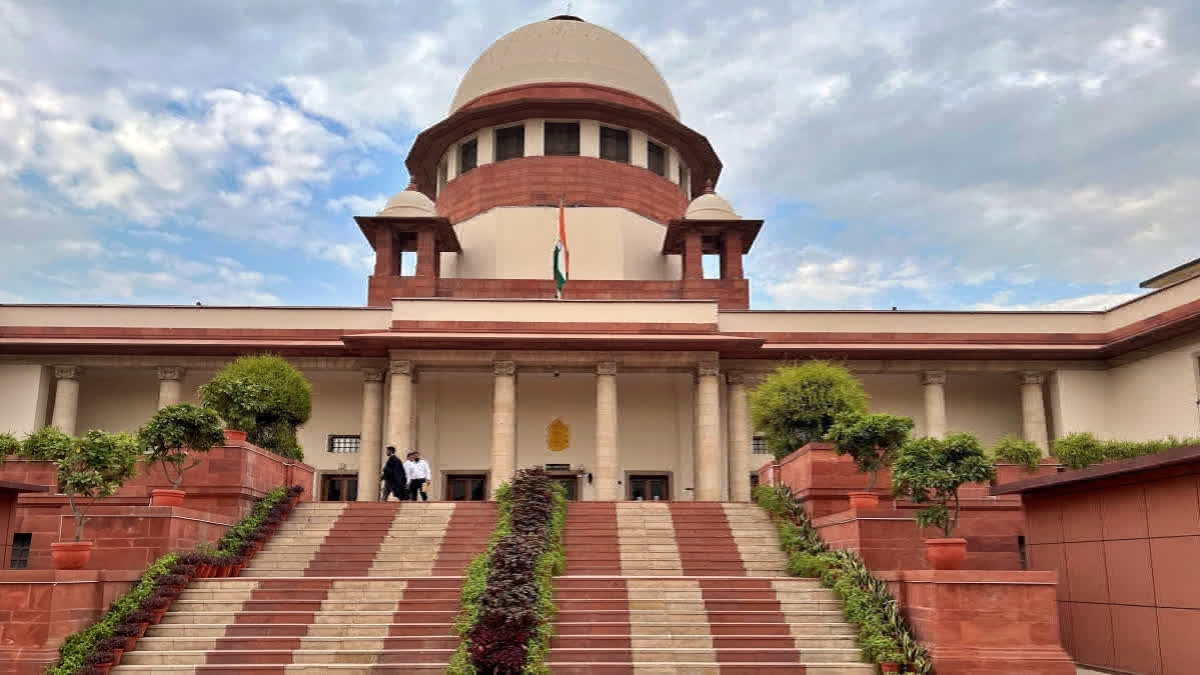New Delhi:The Supreme Court on Wednesday said it was pained by gratuitous observations made by a single bench of the Punjab and Haryana High Court led by Justice Rajbir Sehrawat regarding an order passed by it. The apex court expunged the "contentious and unwarranted" remarks but desisted from initiating the contempt proceedings against the high court judge.
A five-judge led by Chief Justice of India D Y Chandrachud and comprising Justices Sanjiv Khanna, BR Gavai, Surya Kant and Hrishikesh Roy, cautioned the judge by stressing that compliance with the apex court orders is not a matter of choice but a matter of judicial discipline.
“We are pained by the observations made by the single judge of the Punjab and Haryana High Court. The observations are made in regard to an order passed by the Supreme Court...." said the CJI, at the outset.
The apex court on Tuesday took suo motu cognisance of an unusual order issued by a high court judge, who criticised a stay order previously passed by the apex court. The high court had commented that the Supreme Court tends to perceive itself as more “supreme” than it actually is and views high courts as being less “high” than they are constitutionally.
The apex court said its orders have to be complied with, against the backdrop of its position as the head of a hierarchical justice delivery system, by all including high courts and district courts. "A Judge can never be aggrieved by orders of an appellate court and react to it," said the bench, adding that the observations made by the high court judge are a "matter of grave concern."
The apex court also issued a word of caution to the judge, saying that greater caution is expected from him in future while dealing with the orders passed by the apex court and division bench of the high court. The bench noted that a division bench of the high court presided over by the chief justice has taken suo moto cognizance of the order passed by the single judge and the order has been stayed by the division bench.
